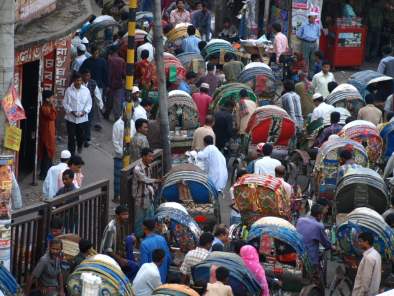The training included a site visit to the Saidabad Surface Water Treatment Plant where participants learnt about the treatment processes and long-term challenges related to water supply to the megacity.
The greater Dhaka Area has a population of 17 million, putting pressure on the water management of the city. It is the fastest growing city in the world and effects of climate change will make water management even more difficult. Only two-thirds of households in Dhaka are served by the city water supply system. More than 9.7 million tons of solid wastes are produced in Dhaka each year.
The 11 trainees came from different organizations: Local Government Engineering Department (LGED), Department of Public Health Engineering (DPHE), Dhaka Water Supply and Sewerage Authority (DWASA), Bangladesh University of Engineering & Technology (BUET), Bangladesh Agriculture Research Council (BARC), Water Resources & Planning Organization (WARPO), Department of Environment (DOE), NGO-Forum, etc. Given the diverse background, there were lively discussions and debates about the issues.
The trainers were local and international experts from different disciplines: engineering, economics, public health, etc. Topics of training sessions included: Climate Change – what is it?; Climate Change Adaptation – Global Perspective; Climate Change Economics; Climate Change and Urban Planning; Climate Change and Coastal Adaptation; Climate Change and Urban Flooding; and other topics.
(Photo: Dhaka by Joseph A Ferris III)
